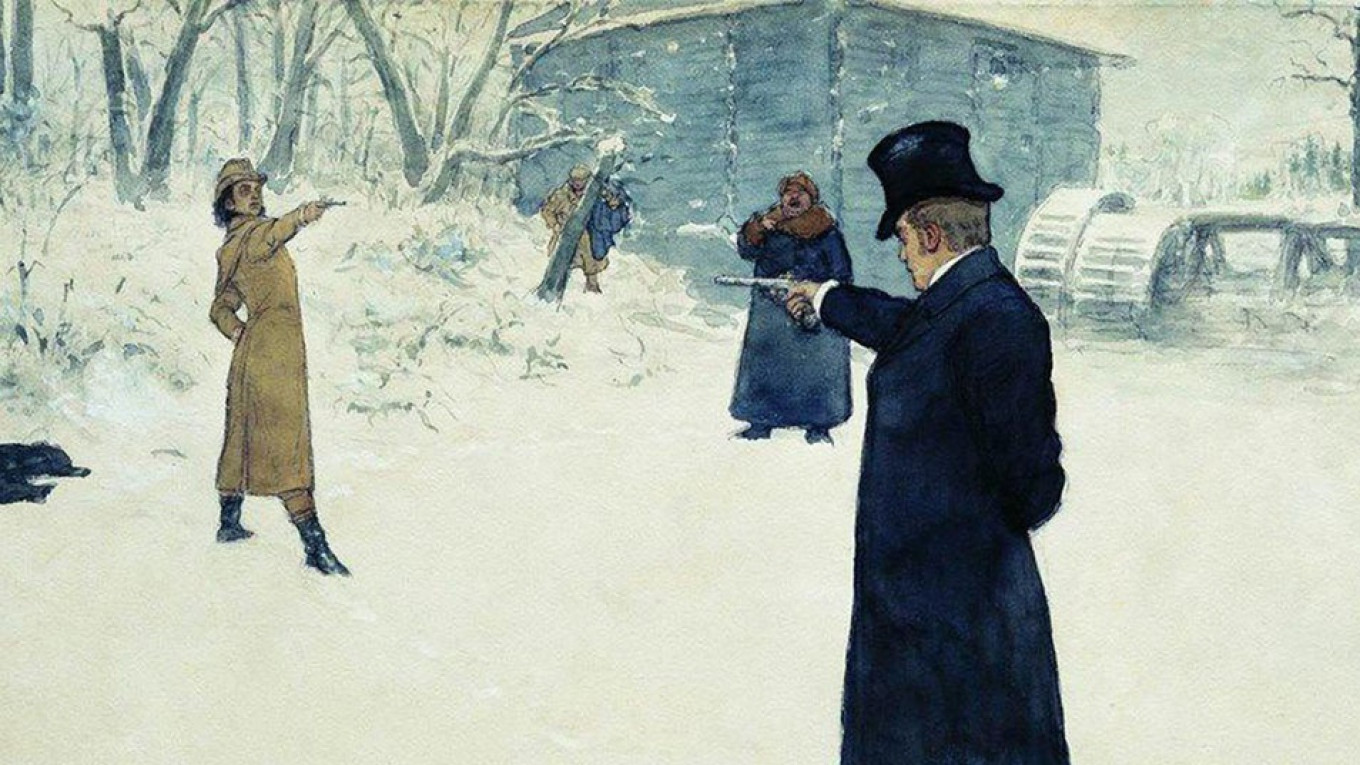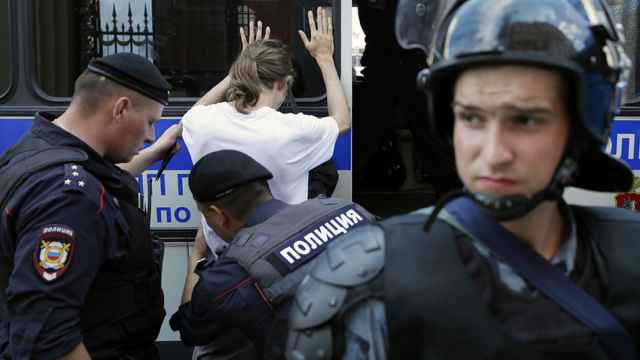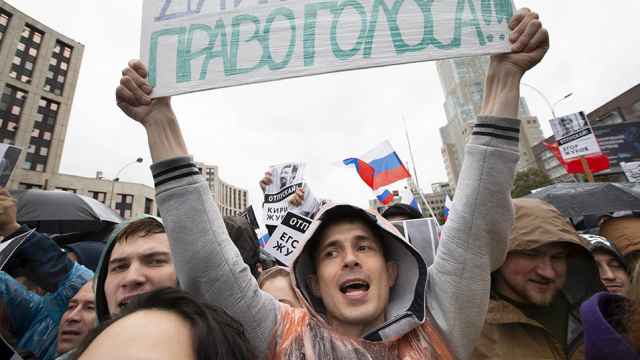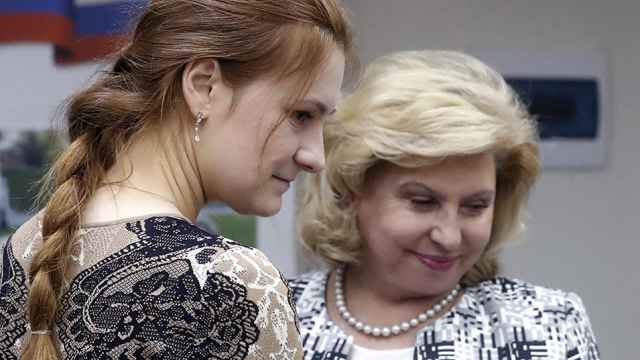A Russian lawmaker has submitted a draft bill codifying duels a day after President Vladimir Putin’s former bodyguard challenged opposition leader Alexei Navalny to revive the practice.
Viktor Zolotov, who heads Russia’s National Guard, promised to pound Navalny “into a juicy steak” on Tuesday as punishment for his video investigations into government corruption. The angry video address sparked debates on whether Zolotov’s challenge should be taken seriously or treated as a joke.
Some 24 hours later, a draft bill spelling out rules on how to deal with insults appeared in the State Duma’s legal database. The so-called “Code on Dueling” limits handgun, sword and epee combat strictly to state officials.
“An inferior person can only violate [the official’s] right but not offend him,” the draft bill reads. “Thus, a duel as revenge for an insult is possible and permissible only between those of equal seniority.”
If a woman insults a subject, the draft bill says an offended person can challenge her “natural protector” to combat.
“An insult directed at a woman doesn’t concern her, but falls directly on her natural protector, who becomes the offended person,” the draft bill reads.
An explanatory note to the draft bill acknowledges that libel laws govern personal smears. “Nonetheless, there’s been a trend among state and municipal officials to challenge citizens who express views that differ from official points of view to duels,” it says.
The Tjournal.com news website notes that the bill, authored by deputy Sergei Ivanov from the nationalist LDPR party, has been copied “almost in its entirety” from a 1912 publication.
The draft bill’s fate is unclear. No date has been chosen for its first hearing in the lower house of parliament.
A Message from The Moscow Times:
Dear readers,
We are facing unprecedented challenges. Russia's Prosecutor General's Office has designated The Moscow Times as an "undesirable" organization, criminalizing our work and putting our staff at risk of prosecution. This follows our earlier unjust labeling as a "foreign agent."
These actions are direct attempts to silence independent journalism in Russia. The authorities claim our work "discredits the decisions of the Russian leadership." We see things differently: we strive to provide accurate, unbiased reporting on Russia.
We, the journalists of The Moscow Times, refuse to be silenced. But to continue our work, we need your help.
Your support, no matter how small, makes a world of difference. If you can, please support us monthly starting from just $2. It's quick to set up, and every contribution makes a significant impact.
By supporting The Moscow Times, you're defending open, independent journalism in the face of repression. Thank you for standing with us.
Remind me later.






